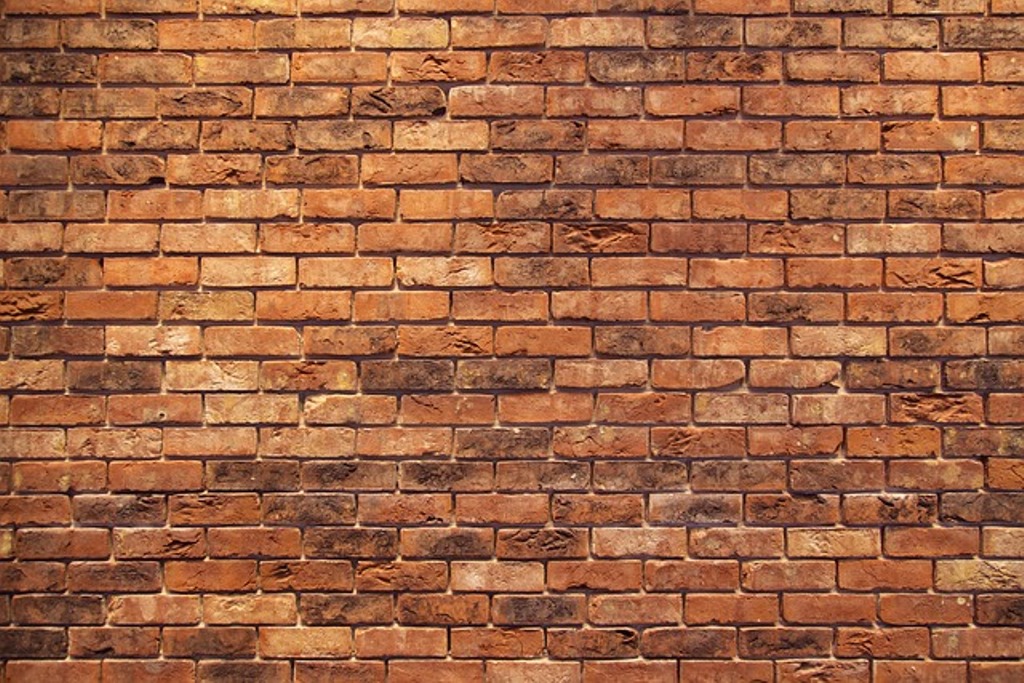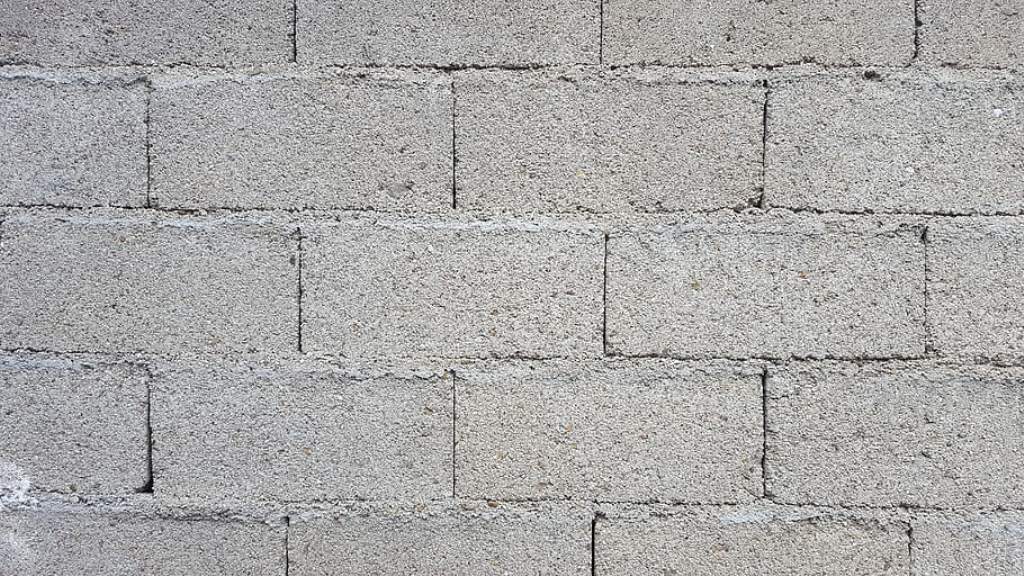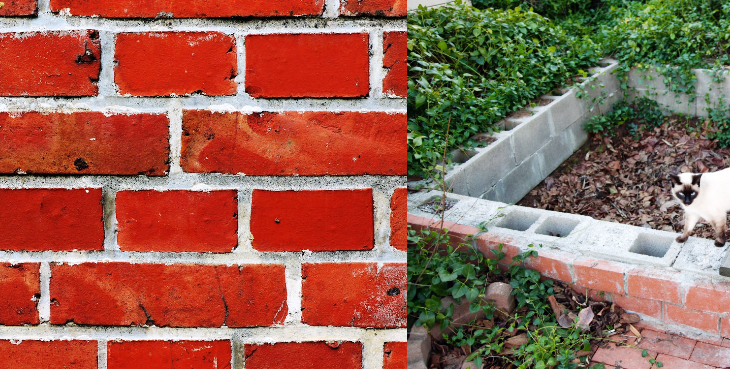Are you hesitating between brick and cinder blocks to build your house? These masonry materials, among the most common in construction, are not without qualities. Each has advantages: the concrete (cinder) block’s economic aspect and the brick’s thermal insulation. But the comparison doesn’t stop there! We’ll give you the lowdown (or the highdown) on choosing the ideal building material for your future home.
The essentials
- Your budget, the ecological aspect, and the performance in terms of thermal insulation are the first points to compare.
- Other criteria include weather resistance, strength, aesthetics, and installation.
- Brick is a simple, reliable, and economical option for building the frame of a house.
- Despite a higher cost at the time of purchase, the thermal insulation qualities of the brick allow for long-term energy savings.
Criteria to consider when choosing between brick and cinder block
Brick or cinder block for the house frame? Before finding the answer and starting your project, we help you study several points of comparison.
Your budget
The price of supplies is an important variable in a construction budget (not to mention labor). Here, the cinder block (concrete block) is one of the cheapest building materials to buy. It is not for nothing that it is so popular.
Brick is more expensive, but the price difference is nuanced:
Bricks used in masonry can save energy in the long term thanks to their thermal insulation properties;
cinder blocks must always be completed by an insulator and a finishing, which can increase the bill.
Requesting detailed quotes from several building contractors is the best way to compare prices and stay within your budget.
Your ecological convictions
You are sensitive to the environmental cause and have decided to build an ecological house? This logically impacts your purchases of building materials, masonry, and insulation.
Consider comparing the manufacturing methods, the carbon footprint, and the properties of each product to make an informed choice. Brick wins this point with its insulating qualities and its low-pollution manufacturing process (even if you should know that its design is energy-intensive).
Good To Know
To make a brick, water is mixed with crushed clay to obtain a paste. This paste is molded, dried, and fired at high temperatures. It is this firing process that requires so much energy!
The climate of your region
The climatic conditions of your region can also make a difference:
Bricks are generally very resistant to humidity;
While concrete blocks are more effective against frost and wind.
Brick is also an excellent natural insulator. Depending on its thickness, its thermal performance makes it almost possible to do without insulation in the mildest regions.
Please note that these comparisons apply to the characteristics of raw materials. In both cases, it is possible to choose products with integrated insulation to improve the house’s thermal insulation.
Solidity and longevity
An advantage to the cinder block! It is the stronger of the two and has a longer life span. It also has a high resistance to fire. And for good reason, it is non-combustible.
The aesthetic aspect
Your choice also depends on the style of your home’s façade. Remember that only brick can go without cladding without compromising its insulating qualities. If you like the look of red brick, it’s ideal.
If you opt for a cinder block, you will have to plan for additional work: painting, plastering, or any other finish.
The method and speed of installation
On the one hand: the cinder block and the cinder brick are straightforward to install.
On the other hand, monomer brick requires thin mortar joints, which means less work than a cinder block. This can speed up your construction: up to 30% less time than with a cinder block wall. But only professionals master this installation technique.
Brick: an ecological solution

Brick is a masonry material made of terracotta with a characteristic red color. There are several types, three of which are particularly suitable for building houses:
- The cinder brick is ideal for load-bearing walls;
- The monomer brick with cells is suitable for building an ecological house;
- The traditional red brick (solid), to be used inside and outside, but more for decoration;
- The brick or facing brick is also intended for decorative use in the interior or exterior;
- The refractory version for fireplaces or pizza ovens.
Advantages
Brick can stand on its own: this is its great strength. Depending on the aesthetic aspect desired for your house, you can build walls without applying a facade covering.
Its thermal insulation properties are such that you don’t always have to add insulation (if the climatic conditions of your region allow it).
It is an ecological solution. Its manufacture is less polluting than the cinder block, although it requires more energy.
Its efficiency against humidity and its capacity to regulate it are remarkable. Breathable when perforated or honeycombed, bricks allow you to enjoy healthier air inside your home.
Disadvantages
Brick is costly to buy, not to mention the addition of insulation, which is its main drawback.
It is also slightly less solid than a cinder block and unsuitable for building long walls.
The technique of laying monomer brick implies calling upon a professional.
Cinder block: the great classic of masonry

The cinder block is undoubtedly the best-known and most used building material. Its concrete structure makes it possible to build reliable and durable houses. Here again, you will find several types:
Cinder blocks: the basic material, the most versatile
Solid or perforated blocks: to build basement walls;
And also more specific blocks: lintel blocks, corner blocks, jamb blocks, with insulation, etc.
Advantages
This building material is widespread, easy to find, and install for any craftsman. The choice of simplicity par excellence.
Also, it is very economical to purchase.
Its solidity and mechanical resistance are its advantages: it remains robust during extreme weather conditions such as frost and storms.
Finally, concrete blocks are non-combustible: they offer your house a high resistance to fire.
Disadvantages
Concrete block is a simple solution, but perhaps too simple. The advantage of its low cost is quickly overtaken by the need to add other equipment or materials to compensate for its weaknesses.
Indeed, the cinder block is a poor thermal insulator with limited effectiveness against humidity. It must imperatively be completed by insulation and ventilation solutions.
The installation of a facade covering is unavoidable.
Its manufacturing method is polluting: it generates large quantities of CO2.
Other possible solutions
And why not both? There is nothing to stop you from combining cinderblocks and cinder bricks: the former for exterior walls and the latter for interior walls, to build partitions and as cladding.
Think of other solutions: a stone house, a wood frame, or even cinder blocks in wood!
Tip: Don’t hesitate to ask for advice from a home builder or a craftsman! You should also ask for at least three quotes to compare services and prices.



















